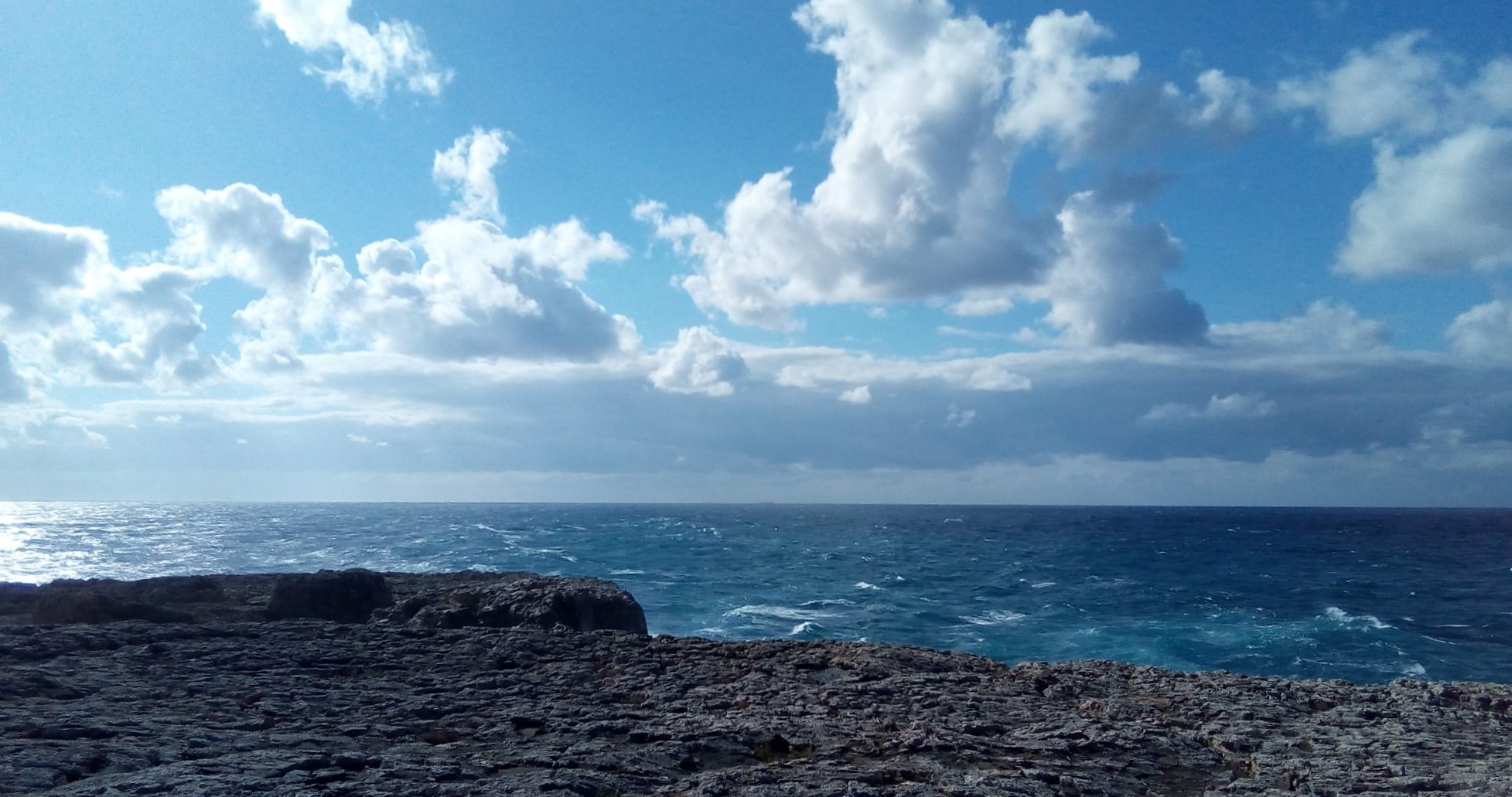On the occasion of International Mediterranean Sea Day, July 8, Arbos (a pioneer in ecological stationery) conceived OCEAN: an ambitious new circular economy project.
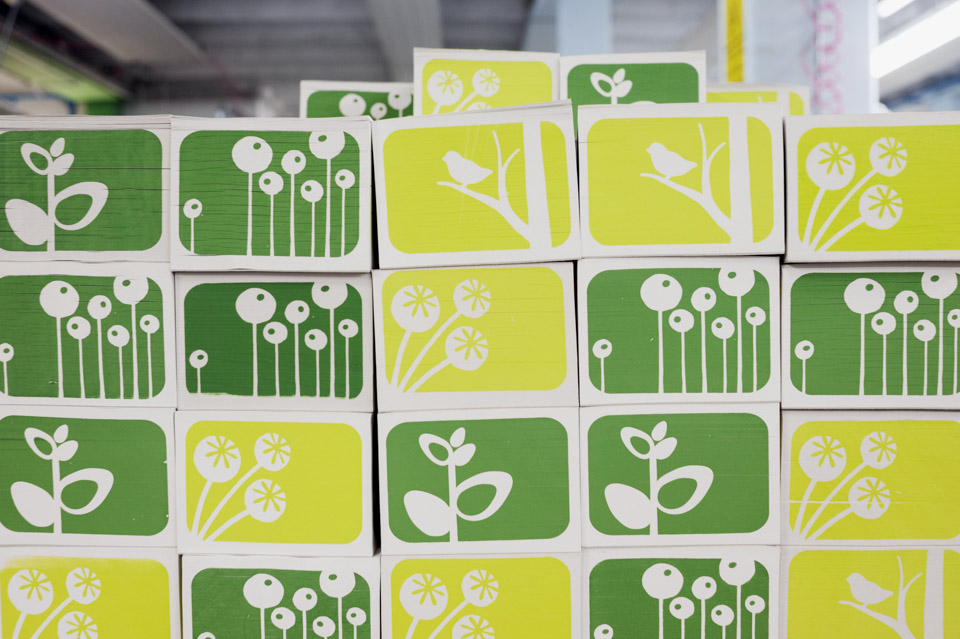
The Mediterranean Sea is not in good health
For Ispra (Institute for Environmental Protection and Research) more than 70 percent of waste settles on the Italian seabed. And of this 77 percent is plastic, which in addition to polluting. Often ends ingested by marine species. Unfortunately, the recycling of plastic collected at sea is difficult to implement. Chemical deterioration, due to the combined action of salt and the sun, makes it practically impossible to recycle. Not even put it back into the production system; as a second raw material. That is why it is crucial to intercept plastic before it reaches the sea. This is how Arbos conceived OCEAN: an ambitious new circular economy project.
Starting with rivers
Since time immemorial rivers, the arteries of the planet, have been protagonists of the well-being and life of the land. Today, because of human activities, they have turned into collectors of waste of all kinds. And they collect it on their way. In fact, 80 percent of the plastic that pollutes our seas comes from inland. Once dispersed in the water, traps and injures (even seriously) birds, fish. And especially reptiles and cetaceans. Over time it deteriorates. Turning into millions of invisible microplastics. That permanently damage the marine ecosystem. While also entering the food chain.
The idea of the OCEAN project originated in 2020. When the Italian community of B-Corp companies took action to promote the recovery of plastic found in rivers before the pollutant ends up in the sea.
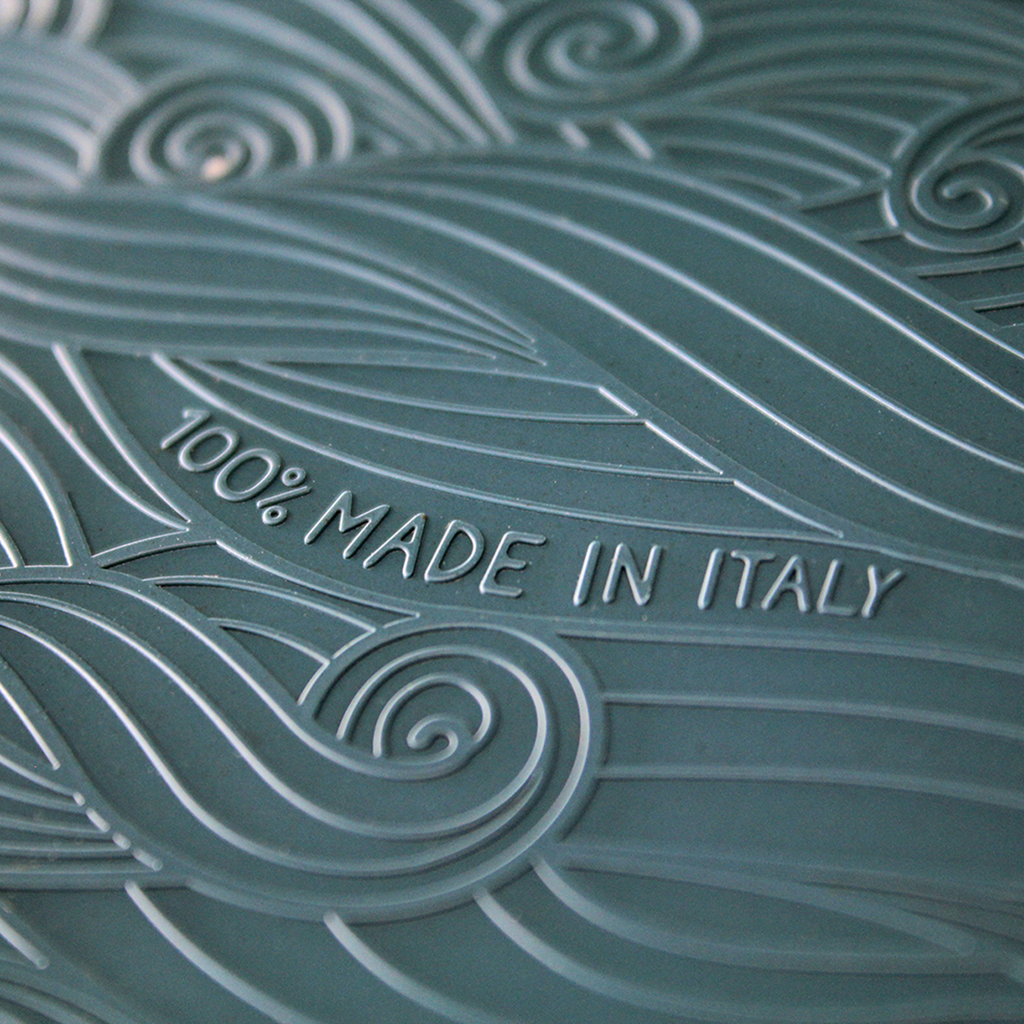
The OCEAN Project
The idea of the OCEAN project originated in 2020. At that time the Italian community of B-Corp companies took action. Promoting the recovery of plastic found in rivers before the pollutant ends up in the sea. Each company pledged to carry out specific projects, in its business sector.
Then Arbos set up the OCEAN notebook project. The idea was to sharing the entire supply chain. From those who process the plastic waste to the final product. In a network to produce the material they use for the cover. Through a choral project of circular economy. However, OCEAN is more than just a notebook. It is a demonstration of how great value can be born, from collaboration between companies. In an open economy. And in a logic shared project.
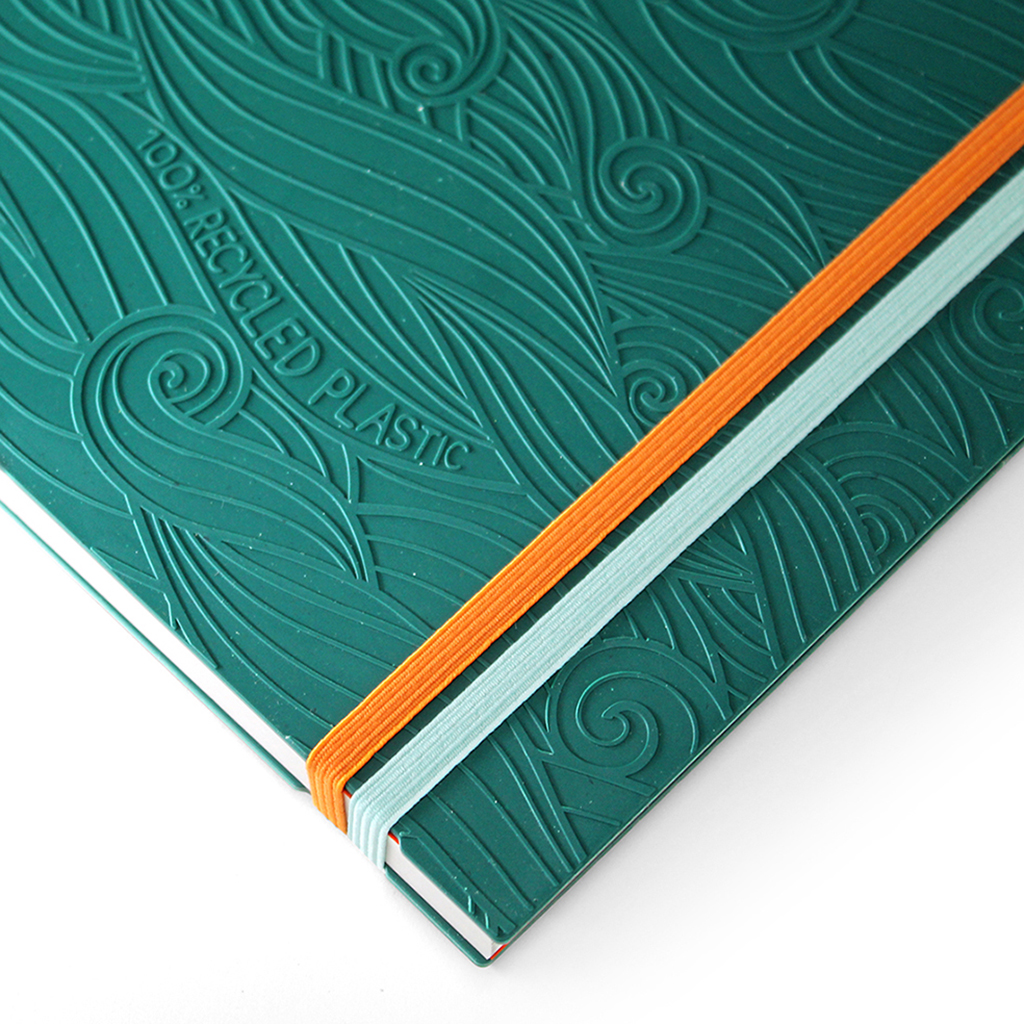
What is a B Corp
A BCorp or b corporation is a company, that has obtained this certification. Namely the b corp certification; issued by B Lab. B Lab is a nonprofit organization. Established with the mission of spreading a new business model. The b corp certification identifies companies that, in addition to having profit goals, meet the highest standards of social and environmental performance. Besides transparency and accountability.
To obtain and maintain certification, companies must measure their performance and externalities through the B Impact Assessment (BIA) measurement standard. And obtain a score of at least 80 points (out of 200). The BIA, which is free and available online, tests impact in 5 areas. Governance, Workers, Community, Environment and Customers. The most widely used impact measurement standard in the world. Adopted by more than 100,000 companies in 71 countries. Among these, about 3000 have achieved a score sufficient for b corp certification. The aim of the global BCorp movement is to make sure that companies’ environmental and social performance is as strong, as their financial performance.
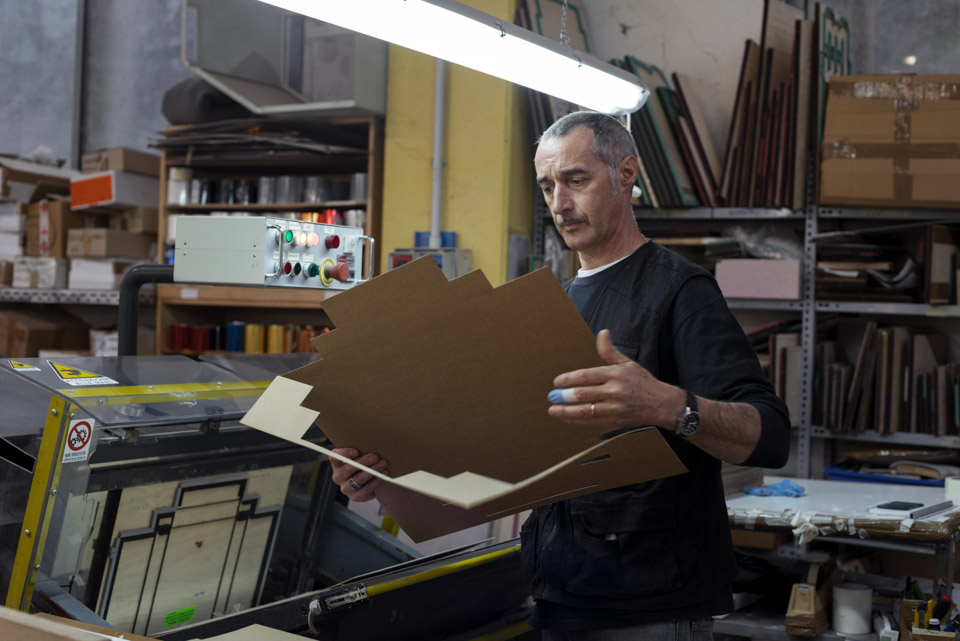
Who is Arbos
Arbos is a pioneer in ecological stationery since its inception (in 1988). Has been helping people in their choices of eco-sustainability. By building products useful in everyday life; but by using materials from recycling.
Recycled paper, recycled leather, and even recycled plastic and fabric interpreted and enhanced through collaboration with the world of design and art. Thus, are born collections of school, office and gift items, with a strong symbolic value.
They are objects that carry positive values. Testifying a way of life respectful of environment. That fights waste, and rejects an unbridled consumerism. Above all rejects to dissipating the resources of our planet. Products that speak about sustainability, creativity and beauty. But also, of valuing the great tradition of Italian craftsmanship. You can see this in an absolutely innovative product (inside Italian stationery sector): OCEAN. The sea-saving notebook.
Recycled plastic is the material of the original cover of the notebook. Coming from waste plastic material. Got by cleaning rivers. In addition, the pages made of 100% post-consumer recycled paper. Arbos’ production philosophy is based on the use of recycled materials. Thus marks another step towards a logic increasingly consistent with eco-sustainability.
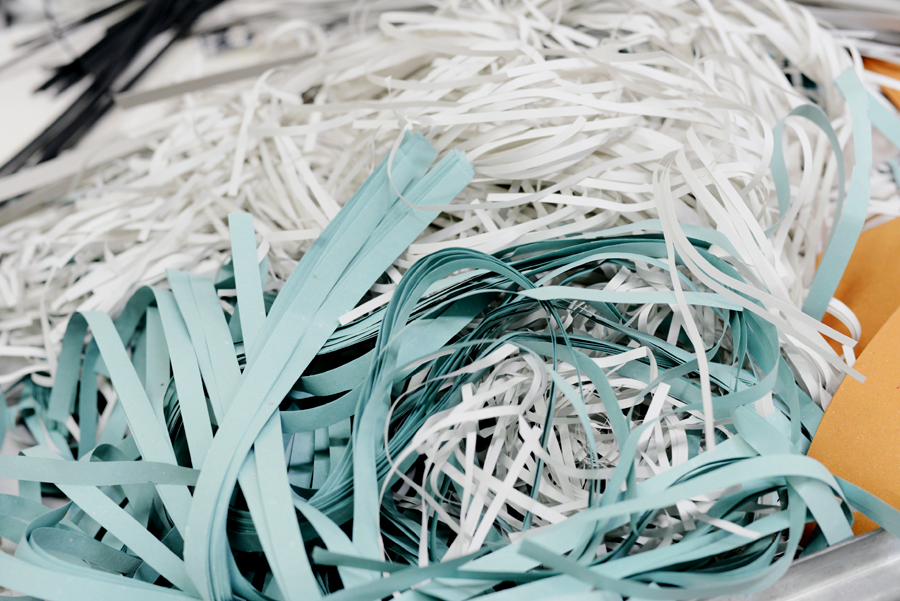
How the process takes place
The materials selection process is rigorous and traceable. Montello recover plastic waste from municipal utilities and the consortia involved in collection and marketing. In line with the OCEAN project, Arbos chose Montello because it directly recycles plastic waste from cleaning river basins. The waste comes from cleaning the Venice lagoon. Also, the Piave River basin, and the Tanaro River basin in the province of Asti. This ensures traceability and consistency between the collection of riverine plastic waste and the use of recycled plastic. From which Arbos makes the notebooks.
Montello differentiates the different types of plastic that are make up the waste. This operation is essential to allow their subsequent use. The plastic granule, as type suitable for OCEAN production therefore arrive to CTP. CTP is a company specializing in molding recycled plastics. It prints the notebook covers according to Arbos’ design. And its technical specifications.
In Arbos the actual making of the notebook, in conclusion, takes place. The insertion of the pages in 100% recycled paper, and the spiral binding. The great value of the product is its communicational strength. OCEAN convey, to those who buy it, a path of sustainability and consistency. According with the criteria of the circular economy. In order to create a teamwork that unites different realities.
From production, to communication, to marketing. With a common goal. Making and promoting eco-sustainable products in a circular economy logic. But, in conclusion, the reason is one. Protect marine environments from pollution by plastic waste.
Website of Arbos: www.arbos.it
Another interesting link: Bananatex fabric produced from banana plants


